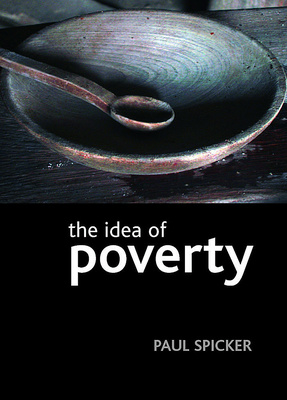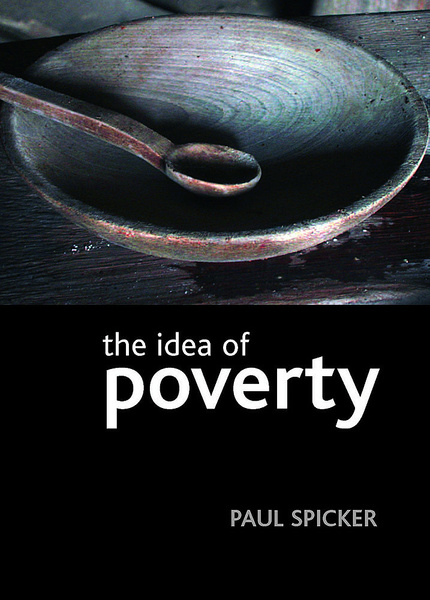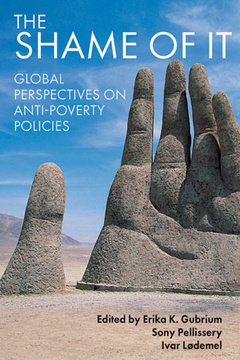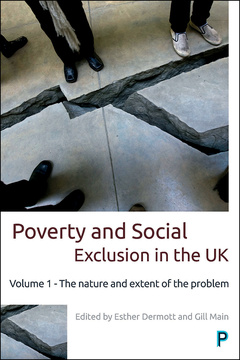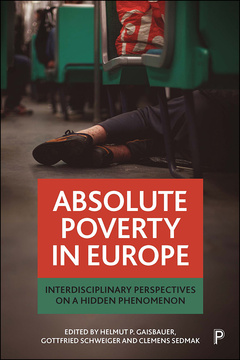The idea of poverty
By Paul Spicker
Published
Jan 10, 2007Page count
184 pagesISBN
978-1861348883Dimensions
240 x 172 mmImprint
Policy PressThis book examines views about what poverty is and what should be done about it. 'Poverty' means many different things to different people - for example, material deprivation, lack of money, dependency on benefits, social exclusion or inequality. In "The idea of poverty", Paul Spicker makes a committed argument for a participative, inclusive understanding of the term.
Spicker's previous work in this field has been described as 'entertaining and sometimes controversial', and his new book certainly lives up to this. Some of the book's ideas are complex and will be of particular interest to academics and others working in the field, but the book has been written mainly for students and the interested general reader. It challenges many of the myths and stereotypes about poverty and the poor, and helps readers to make sense of a wide range of conflicting and contradictory source material.
"It is accessible, wide-ranging and well organised....." Citizen's Income Newsletter, Issue 2, 2008.
"This book does two things and does both of them well. First, it provides a comprehensive, well written, and coherent overview of 'the idea of poverty' or perhaps rather of the 'ideas' of poverty, in terms both of concepts of poverty and the evidence about poverty. As such it is both an excellent text for students who must consider poverty and a useful general resource. Second, the author has his own clear views, expresses them well, and in the best tradition maintains a clear difference between opinion and his account of poverty as a whole. This is an important addition to the literature." David Byrne, University of Durham, UK
Paul Spicker holds the Grampian Chair of Public Policy at the Robert Gordon University, Aberdeen and is the Director of the Centre for Public Policy and Management. His research has mainly focused on issues related to poverty, need, disadvantage and service delivery, and he has undertaken a range of applied work on social welfare issues.
Part one: Understanding poverty: Defining poverty; Poverty in different societies; Understanding the figures; Part two: Poverty as material need: Concepts of need; Area deprivation; Part three: Poverty as economic position: Economic resources; Class; Part four: Poverty and social relationships: Social exclusion; Dependency; Poverty and politics; Part five: Poverty as a moral concept: The moral dimensions of poverty; The moral condemnation of the poor; Part six: Explanations for poverty: Why people are poor; Why poor countries stay poor; Part seven: Responses to poverty: Responding to poverty; Policies for poverty.







